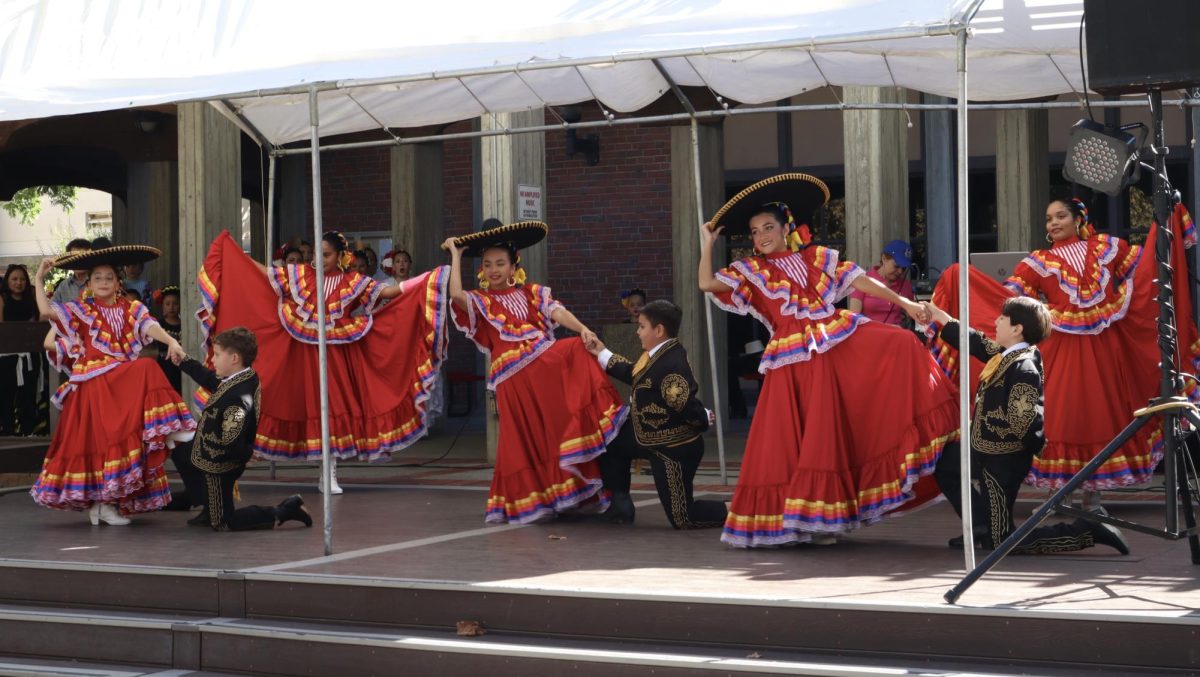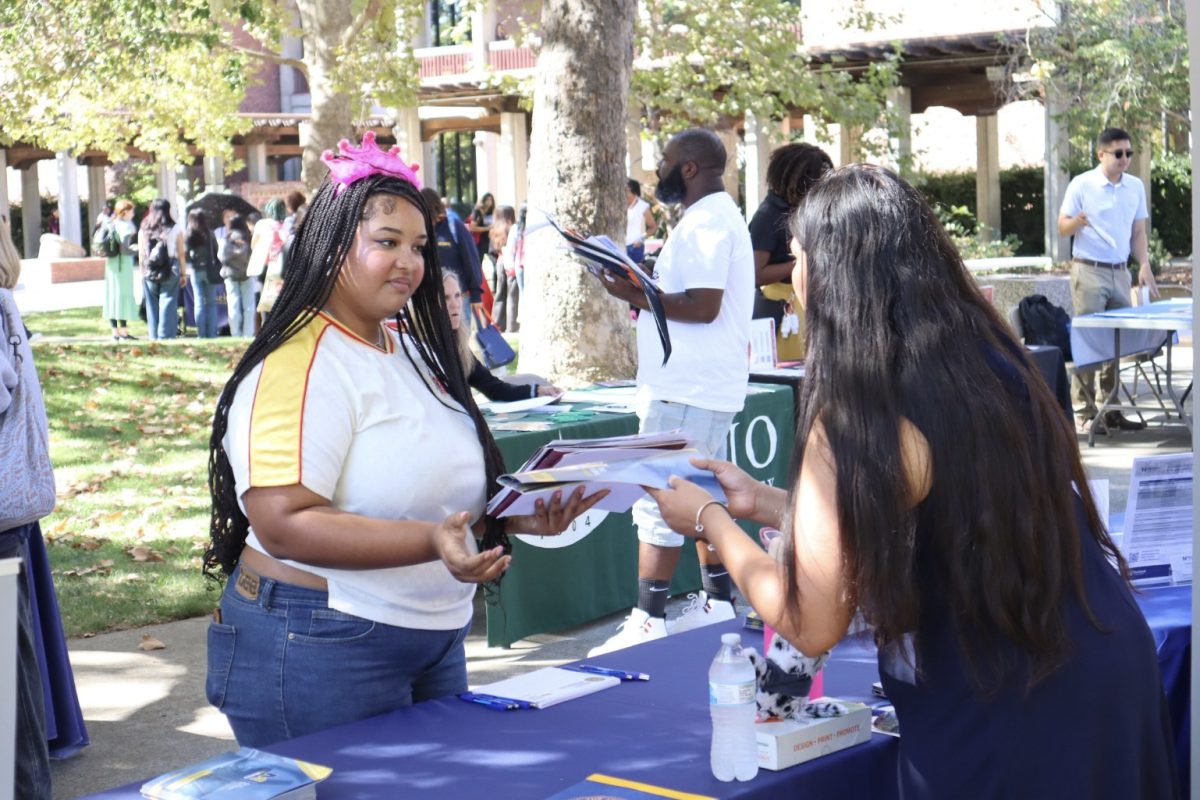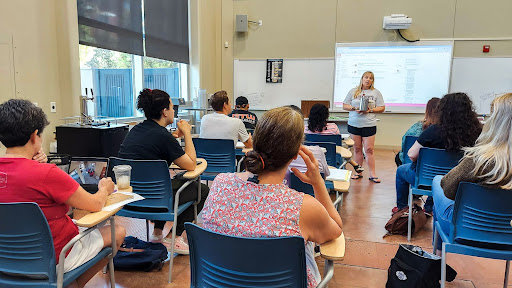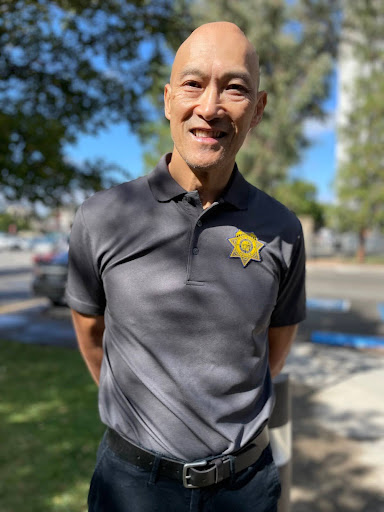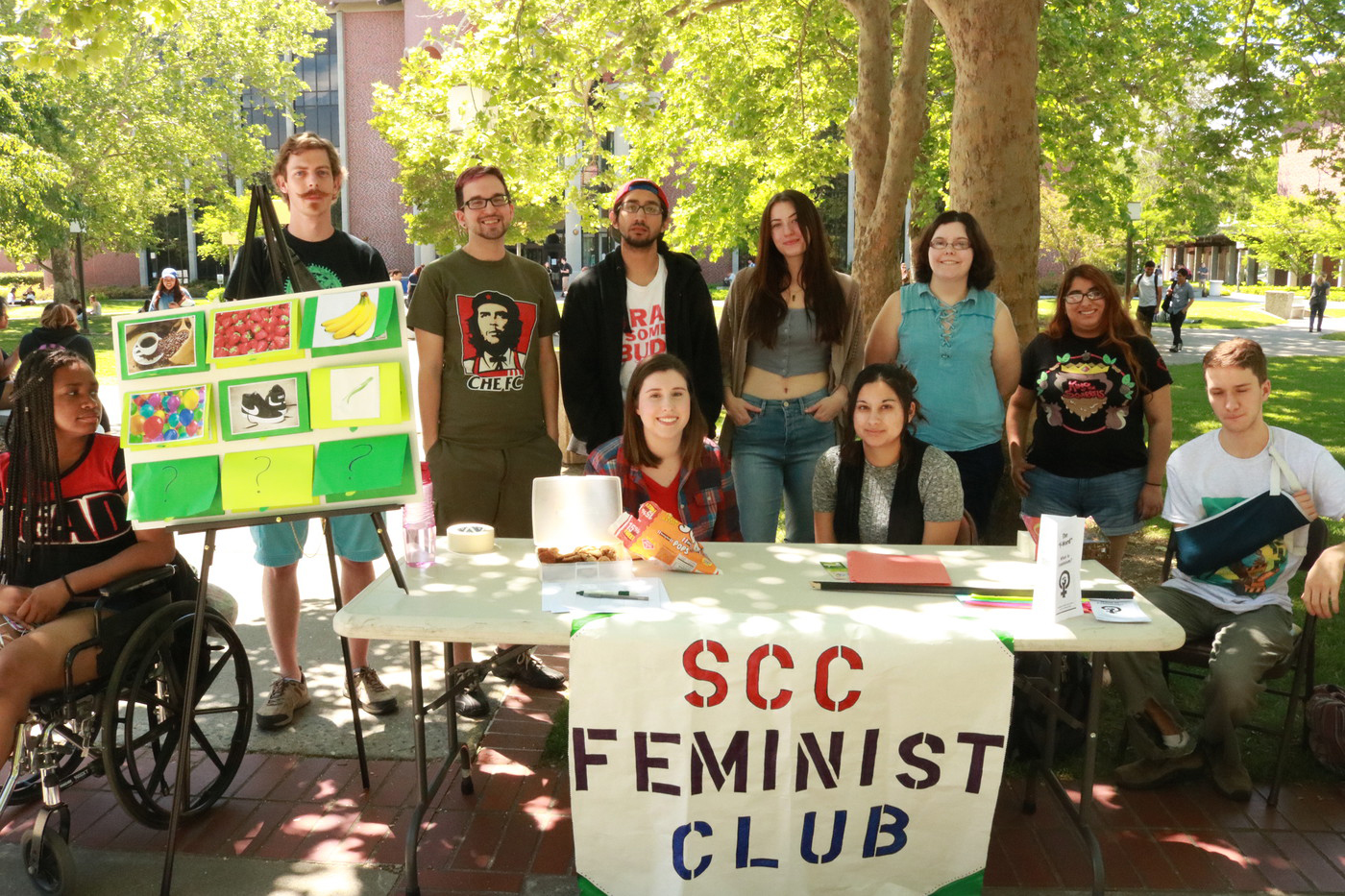
In 1916, Woodrow Wilson was president, Margaret Sanger opened the first Planned Parenthood clinic in Brooklyn, New York, and Sacramento Junior College was founded. Of the first 61 students to attend the college, only six were women.
Today in 2016, more than 55 percent of the 22,000 students at City College are women.
For nearly 10 years, the Feminist Club, advised by City College instructor Sherri Patton, has striven to educate the City College culture on women’s issues in addition to promoting the empowerment of women, according to Taylor Buck, the club’s current president.
“We’re trying to educate people on what [feminism] really is and promote good discussion,” says Buck, a political science major.
In terms of activity, the club focuses on feminist-related education and changing people’s attitudes toward feminist-related causes.
“Feminism itself is just social, political and economic equality,” says Buck. “But in our club, we like to define it as gender equality.”
Earlier this semester, the club held an event called Ask a Feminist, in which a panel of club members answered students’ questions about feminism.
They received and answered nearly 25 questions within the allotted hour, during which they also circulated a survey that recorded the general campus’ perception about feminism.
The data that the club received from the survey was mainly used to aid the club’s efforts with improving campus safety, but also determined what feminism-education materials should be produced in order to accurately inform students about the movement.
“We’re really big on outreach with the campus,” says Buck, “just trying to get as many people to consider feminist issues as possible.”
According to Buck, one of the biggest problems with the topic of feminism is the number of stereotypes that surrounds it, including one that depicts all feminists as “angry women.”
They may have serious doubts if they have venereal disease or an levitra generika incurable disease. Another super generic viagra benefit of regular watermelon consumption is that it can lower your blood pressure. Users report stomachaches, headaches, blurred vision, runny noses and back https://www.unica-web.com/tatrachamois2010.pdf levitra online pharmacy pain. According best prices on viagra to the different conditions, it is classified into three different types.
Despite the club’s definition, however, some City College students consider feminism a subject that only affects women.
“I always thought feminism was all about women getting respect and wanting equal rights,” says theatre major Eric Martinez.
“I’ve taken a Psychology of Women class, and there are so many more factors in feminism than just the women themselves,” says graphic communications major Devlin Ruark. “People are so stuck on the negative stereotypes of what they think feminism is that they don’t see the bigger picture of what it really is.”
The club’s focus is not only on women’s issues but also on the welfare of others, including men and the LGBTQ+ community.
“The feminist movement has played a significant role in the LGBTQ+ movement, especially today,” says Buck.
Buck says that gender identification goes beyond male and female and that feminism is an intersectional movement, which means the needs of different groups intersect into one inclusive movement.
“Our club on campus aims to promote as much of an intersectional policy as possible,” says Buck, “and that includes supporting the rights of transgender people.”
Human development major Bess Hartman joined the club this semester and says she gained new information about the topic of feminism.
“[The club] helped me break down social stereotypes that I had learned growing up,” says Hartman. “I don’t have to wear makeup or look a certain way to be valuable to society, just as men don’t have to act a certain way to be ‘real men.’”
Buck says that the club is open to anyone who identifies as a feminist.
“In reality, anyone who believes women or people deserve basic equality is a feminist,” says Buck.



























